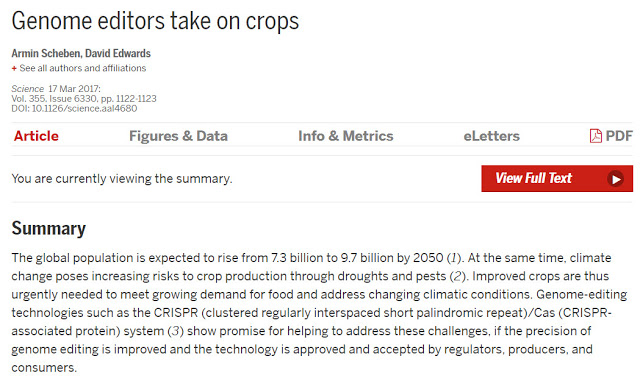

| Online: | |
| Visits: | |
| Stories: |

| Story Views | |
| Now: | |
| Last Hour: | |
| Last 24 Hours: | |
| Total: | |
Gene editing is different to genetic modification, so should its regulation be relaxed?
 |
| Article by Scheben and Edwards cited by ABC Rural |
An even handed discussion of gene-editing regulation by ABC Rural:
Australia's classification of genetic modification is inhibiting the country's potential for future crop growth, according to a University of Western Australia (UWA) researcher.
Under current legislation, a genetically modified organism (GMO) is broadly defined as an organism that has been modified by gene technology and is subject to heavy regulation.
While there are some exclusions, this generally means crops developed using new plant breeding technologies, like genomic editing, are considered GMOs.
Genomic editing has been commonly described as a way of 'cutting and pasting' DNA at specific sequences in a certain species.
This is as opposed to genetic modification which includes transferring genes across different species.
UWA professor of plant biology Dave Edwards said if Australia were to relax regulations on some genome-edited products, plant breeders would be able to breed and produce climate-resistant crops at a far more rapid pace.
Source: http://gmopundit.blogspot.com/2017/03/gene-editing-is-different-to-genetic.html


